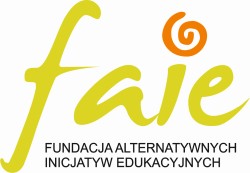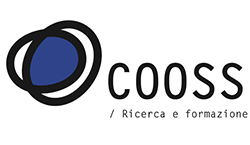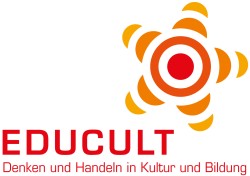Displaying items by tag: lifelong learning
WE HAVE GATHERED RECOMMENDATIONS FOR EUROPEAN LEVEL COOPERATION AND NETWORKING
The EU NET project team is ready to share the "Recommendations for developing European cooperation of the Civil Society Organizations active in the Lifelong Learning Sector".
After thorough desk research and interviews with managers of European networks, we have gathered together best recommendations for European level cooperation and networking. Have a look - and get inspired!
The publication is available in English, Polish, Italian, Hungarian, Icelandic and Portuguese.
READY TO INSPIRE: RECOMMENDATIONS FOR EUROPEAN LEVEL COOPERATION OF CIVIL SOCIETY ORGANISATIONS
The EU NET project team is ready to share the "Recommendations for developing European cooperation of the Civil Society Organizations active in the Lifelong Learning Sector".
After thorough desk research and interviews with managers of European networks, we have gathered together best recommendations for European level cooperation and networking. Have a look - and get inspired!
The publication is available in English, Polish, Italian, Hungarian, Icelandic and Portuguese.
EUROPEAN NETWORKING CONFERENCE in Kraków, Poland, 17th of April 2024 - feel invited!
All interested in European networking, cooperation and networking - please feel invited to the European Networking Conference valorising the key outcomes of the “EUropean NETworking as a method for further training and exchange of ideas in the lifelong learning sector” [EU NET] project!
The Conference will take place 17th of April 2024 in the Citizenship Centre in Kraków, Poland (Centrum Obywatelskim in Kraków, Reymonta 20 Str., the building of the Henryk Reyman City Stadium). The conference starts at 9.30 a.m. and ends at 2 p.m. (The nwtworking space will be opened by 4 p.m.)
The conferrence will be accompanied by the European Networking Fairs dedicated to the organisations interested in European level cooperation and networking.
The aim of the event is to share knowledge and tools developed during the 28-months long cooperation of five Civil Society Organisations from five European countries: Poland, Italy, Hungary, Iceland and Portugal - as well as to create a space for networking and European cooperation building.
We invite to the conference the representatives of Civil Society Organisations (i.e. associations, foundations, social cooperatives, etc.)/institutions/enterprises/informal groups interested in European cooperation and lifelong learning. We invite board members, workers, co-workers, owners, managers, volunteers and members.
During the Conference, the following topics will be presented and discussed:
- The interactive Toolkit on European project management dedicated to the Civil Society Organisations, in two parts: Part 1: "Project planning and designing" and Part 2: "Managing, monitoring and evaluating the project".
- Recommendations for developing European cooperation of the Civil Society Organizations active in the Lifelong Learning Sector.
- Ecological and social aspects of Inclusion and Diversity in adult education.
- Digital transformation for better distance and online teaching and learning for adults.
- Environmental awareness of the learners and educators & supporting active democratic participation of the adult Europeans.
The interested will be offered the opportunity to present their organisations/institutions/enterprises/informal groups during the European Networking Fairs (we offer a table and space to display information/promotion materials about the activities of the represented organisations. What is more, we will invite you to prepare 1-page presentation of your organisation summarising its expertise and areas of interest for the European cooperation).
The Fairs are being organised by the FIRST Network, an international network of civil society organizations operating in the area of adult liberal education (lifelong learning). The Mission of the FIRST Network is strengthening the capacity of civil society organizations and entities active in the adult education sector to operate in the international arena, enhancing innovativeness and the ability to adapt to changes in the modern world. It includes organisations from Poland, Italy, Hungary, Portugal, Iceland, Denmark, Austria and Spain. Perhaps it is during the EU NET conference that you will make new international contacts for the organisation/institution/group you represent?
The European Networking Conference programme is available here.
Participation in the Conference is free of charge. The participants need to cover the costs of travel and accomodation in Kraków**.
In order to register to the Conference, please fill in the registration form available here: Join the Conference!
The registration is opened by 15th of April 2024, by 23:59 CET.
If you would like to participate, but unable to come to Kraków - feel invited to use the opportunity to participate in the 1st part of the conference online! To register tthe online participation please choose this option in the application form here: Join the Conference!
** There is the possibility to have the costs partly reimbursed. Please contact the organisers to learn more: This email address is being protected from spambots. You need JavaScript enabled to view it.
The Conference is being realized in the frames of the “EUropean NETworking as a method for further training
and exchange of ideas in the lifelong learning sector” [EU NET] project, co-financed by the European Union in
the frames of the Erasmus+ Programme (2021-2027)
RECOMMENDATIONS FOR THE EUROPEAN PROJECT MANAGERS' COMPETENCES RECOGNITION AND VALIDATION SYSTEM FOR LIFELONG LEARNING developed by the FIRST Network
Based on the results of the 34 months long European exchange and consultations process, the recommendations for the validation and recognition system for the European project managers working in civil society organisations are:
- Acknowledge that the dimension of mission and purpose is crucial in the 3rd sector.
- Define clear definitions/understandings of competences, skills and experiences.
- Build competence validation and recognition systems encompassing theoretical and practical parts of a competence.
- Allow flexibility that considers the diversity of the civil society.
- Recognise cultural and social differences.
- Be sensitive to the qualities of values and attitudes.
- Ensure validation through transparent procedures.
- Ensure recognition of formal, non-formal and informal knowledge.
- Ensure simplicity to understand and measure.
- Allow accessibility for those already working in the area [of civil society] and also those without experience.
- Consider the complexity of the individual personality [of the candidates to validate and recognise their competences].
- Take into account work experience in various areas.
- Have the recognition and validation system evidence-based to achieve recognised status in the European Union.
- Include references to the already existing, similar/relevant recognition and validation schemes to avoid “reinventing the wheel".
By making progress in the areas as mentioned above, we will address the most critical and helpful root characteristics of the valuable and practical validation system for the European projects' managers and achieve positive change in many other areas such as:
- Transparency and recognition of skills and qualifications on the European level.
- Extending and developing the competences of educators and other personnel who support adult learners.
- Supporting the setting up of and access to upskilling pathways.
- Strengthening the European Civil Society Organisations sector.
- Promoting lifelong learning among the Europeans.
The reccommendations were developed in the frame of the project AER-V "Recommendations for international project managers competences recognition and validation for lifelong learning" co-funded by the Erasmus Plus Programme of the European Union, involving the following FIRST Network members:
Fundacja Alternatywnych Inicjatyw Edukacyjnych (PL), www.fundacjaaie.eu (Leader)
Cooperativa Sociale COOSS MARCHE ONLUS scpa (IT), http://www.cooss.it/it/
Interfolk, Institut for Civilsamfund (DK), www.interfolk.dk
EDUCULT - DENKEN UND HANDELN IN KULTUR UND BILDUNG (AT), www.educult.at
Rightchallenge - Associação (PT), www.rightchallenge.org
and
Future Worlds Centre (CY), www.futureworldscenter.org
More details: HERE
RECOMMENDATIONS FOR THE EUROPEAN PROJECT MANAGERS' COMPETENCES RECOGNITION AND VALIDATION SYSTEM FOR LIFELONG LEARNING
Based on the results of the two-year-long European exchange and consultations process, the recommendations for the validation and recognition system for the European project managers working in civil society organisations are:
- Acknowledge that the dimension of mission and purpose is crucial in the 3rd sector.
- Define clear definitions/understandings of competences, skills and experiences.
- Build competence validation and recognition systems encompassing theoretical and practical parts of a competence.
- Allow flexibility that considers the diversity of the civil society.
- Recognise cultural and social differences.
- Be sensitive to the qualities of values and attitudes.
- Ensure validation through transparent procedures.
- Ensure recognition of formal, non-formal and informal knowledge.
- Ensure simplicity to understand and measure.
- Allow accessibility for those already working in the area [of civil society] and also those without experience.
- Consider the complexity of the individual personality [of the candidates to validate and recognise their competences].
- Take into account work experience in various areas.
- Have the recognition and validation system evidence-based to achieve recognised status in the European Union.
- Include references to the already existing, similar/relevant recognition and validation schemes to avoid “reinventing the wheel".
By making progress in the areas as mentioned above, we will address the most critical and helpful root characteristics of the valuable and practical validation system for the European projects' managers and achieve positive change in many other areas such as:
- Transparency and recognition of skills and qualifications on the European level.
- Extending and developing the competences of educators and other personnel who support adult learners.
- Supporting the setting up of and access to upskilling pathways.
- Strengthening the European Civil Society Organisations sector.
- Promoting lifelong learning among the Europeans.
The context: AER-V
An international team composed of six Civil Society Organizations from Poland, Italy, Denmark, Austria, Portugal and Cyprus worked together for over two years to develop the recommendations supporting the recognition and validation of knowledge, skills and competences of the European project managers active in Civil Society Organisations.
In the frame of the project AER-V "Recommendations for international project managers competences recognition and validation for lifelong learning" co-funded by the Erasmus Plus Programme of the European Union, the team has conducted six international exchanges of experiences and good practices, concluded with the short-term joint staff training event, Structured Democratic Dialogue Co-laboratory.
The goal of the AER-V initiative was to support the recognition and validation of knowledge, skills and competences of international project managers active in Civil Society Organisations (CSOs) in the adult education sector, acquired through formal, non-formal and informal learning.
The AER-V team has been working for the benefit of the direct target group, including the members, workers, co-workers, educators and volunteers of the Third Sector adult education organisations
(i.e. Civil Society Organisations, including informal groups, Non-governmental organisations and other non-profit organisations).
The AER-V initiative was the follow-up initiative building on the conclusions and recommendations of a previous project, the "First-time international projects realisers support network", realised in the period October 2018 – December 2020. One of the results of this project was the founding of the FIRST Network, an international network of civil society organisations operating in the area of adult liberal education (lifelong learning). The Mission of the FIRST Network is to strengthen the capacity of civil society organisations and entities active in the adult education sector to operate in the international arena, enhancing innovativeness and the ability to adapt to changes in the modern world. All the organisations realising the AER-V initiative are also members of the FIRST Network.
As a result of the AER-V initiative, a list of Recommendations to give suggestions for the validation and recognition system for the European project managers working in the civil society organisations was developed and is now being shared with the civil society organisations and the other stakeholders interested in European cooperation, lifelong learning and the broad public.
We consider that raising awareness of the need and usefulness of the validation and recognition system of the competences of the European project managers working in civil society organisations is one of the most important steps to ensure transparency and recognition of skills and qualifications on the European level as well as to facilitate the European cooperation and promote lifelong learning.
We would highly appreciate it if you endorse this initiative and the Recommendations.
The FIRST Network Team.
ATTACHMENTS:
1. Report: The short-term joint staff training event, Structured Democratic Dialogue Co-laboratory, picturing the whole process of developing the recommendations.
Study on the History of Adult Education in Europe
The paper “Development of Adult Education in Europe and in the Context of Knowles′ Study” offers a brief history of the development of adult education in Europe. It largely focuses on the origins of the contemporary definitions of adult education and the works of Malcolm S. Knowles, one of the scholars who helped establish the field. Teaching adults is much different from teaching children, so it is important to establish strategies and theories for the field of adult education.
Taking the time to read texts that provide the theoretical foundation for the field one works in can be useful for creating a deeper understanding of the strategies and objectives that can be implemented.
Read the full paper here.
The Council of the European Union recommendations on key competences for lifelong learning
This is a legal document from 2018 that affirms the European Union’s support for lifelong learning. It emphasizes the importance of inclusive, lifelong education as a central right for all people.
It lays out the central competences for lifelong learning, which include:
- Literacy competence
- Multilingual competence
- Mathematical competence and competence in science, technology, and engineering
- Digital competence
- Personal, social and learning to learn competence
- Citizenship competence
- Entrepreneurship competence
- Cultural awareness and expression competence
Read the full document here.
Project Support Facility of The Council of the Baltic Sea States (CBSS)
The Project Support Facility (PSF) was created in 2012 to co-finance projects around the Baltic Sea Region to foster sustainable partnerships in relation to the 3 long-term priority areas of the CBSS:
- Regional Identity.
- Sustainable & Prosperous Region.
- Safe & Secure Region.
The projects proposed have to be relevant for and with reference to at least one area of expertise within the priorities.
The 2021 PSF call is dedicated to innovative solutions for strengthening resilience by promoting inclusiveness and protection of most vulnerable societal groups in the Baltic Sea Region during a period of crisis. The Call Is opened from 15 February to 31 March 2021.
Eligible countries: Denmark, Estonia, Finland, Germany, Iceland, Latvia, Lithuania, Norway, Poland, Russia, Sweden.
FIRST Network. Feel invited to join as a Member!
The FIRST Network is an international network of civil society organizations operating in the area of adult liberal education (lifelong learning). The Mission of the FIRST Network is strengthening the capacity of civil society organizations and entities active in the adult education sector to operate in the international arena, enhancing innovativeness and the ability to adapt to changes in the modern world. The basic terms of operation of the FIRST Network are described in the Memorandum of Understanding Founding the FIRST Network.
The FIRST Network is open for new members that can become the civil society organisations and entities active in the field of liberal adult education/lifelong learning. If interested in being the Member, please fill in this form and contact one of the Founding Members representatives:
Poland:
Agnieszka Dadak: This email address is being protected from spambots. You need JavaScript enabled to view it.
Italia:
Lorenza Lupini: This email address is being protected from spambots. You need JavaScript enabled to view it.
Magyarország:
Marianna Labancz: This email address is being protected from spambots. You need JavaScript enabled to view it.
Danmark:
Hans Jørgen Vodsgaard: This email address is being protected from spambots. You need JavaScript enabled to view it.
Österreich:
Aron Weigl: This email address is being protected from spambots. You need JavaScript enabled to view it.
Recordings of the webinars from the virtual international pilot course: "How to plan, develop and realise international projects..."
Course 1: Planning & Designing the project.
1.1. Shortage Pyramid of successful cooperation among Civil Society Organisations (CSOs) [00:00:00 - 00:12:50)
1.2. Planning the project, part 1 [00:12:51 - 01:04:33]
- Why and how can you start to work internationally?
- How to prepare the development plan and project concept?
1.3. Designing the project, part 1 [01:01:35]
- What aims and goals will the project realise?
- What tasks/activities need to be realised?
- How long and when will the project be realised?
- How much would it cost?
- What are the planned outputs and results?
1.4. Designing the project, part 2 [00:55:27]
- How to measure project results?
- What could influence the project?
Course 2: Coordinating & Running the project.
2.2. Coordinating the project, part 2 [00:51:45]
- The partners and the coordinator.
- Coordinating teamwork.
- Project management – project execution.
- Team management.
- Budget control.
- Financial management.
Course 3: Monitoring & Evaluating the project.











